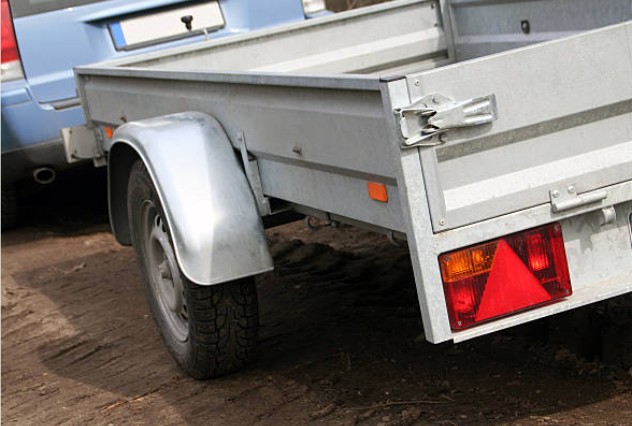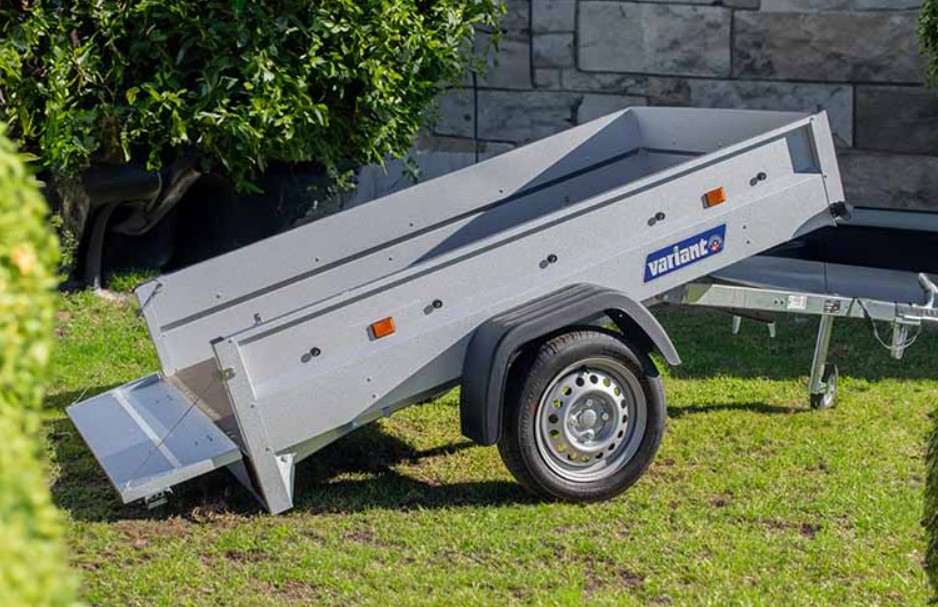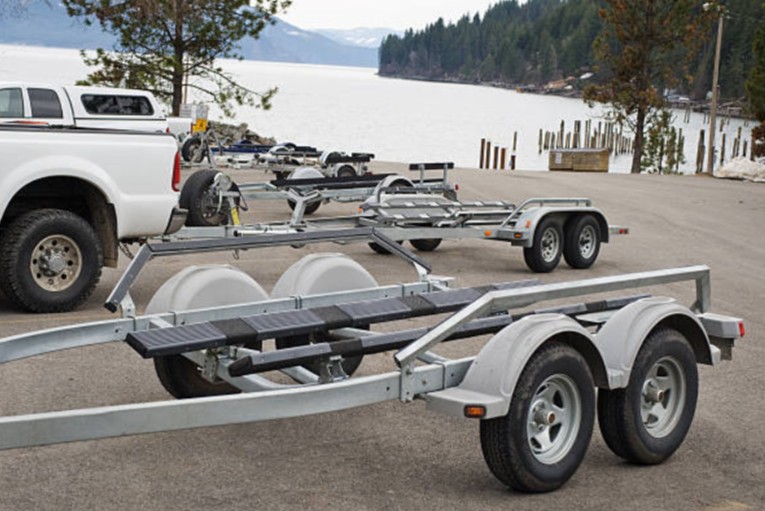Trailers are an essential part of transportation across the UK, used for everything from hauling goods to towing recreational vehicles. However, ensuring a trailer meets the necessary safety standards is not just about convenience—it’s also a matter of law. If you’re towing a trailer, it’s important to understand what safety devices are required by UK law. This article will break down the safety devices that must be fitted to a trailer, highlighting the legal must-haves and explaining why these features are crucial to road safety.
Why Are Safety Features Necessary for Trailers?

Trailers are often larger and heavier than standard vehicles, making them potentially hazardous if not properly equipped. Safety features are critical for reducing accidents, improving visibility on the road, and ensuring the trailer functions well in various driving conditions. By adhering to the required regulations, you are helping to protect yourself, your passengers, and other road users. In the UK, there are strict laws in place that outline the safety features a trailer must have to be deemed roadworthy.
Ensuring that your trailer has the proper safety equipment isn’t just about following the law—it’s also about making sure your journeys are as safe as possible. This involves keeping up with maintenance and making sure all necessary devices are in working order.
What Safety Device Must Be Fitted to a Trailer? The Legal Requirements
To help make sure trailers on UK roads are safe and functional, several safety devices must be fitted by law. These include equipment for better visibility, braking, and securing the trailer in case of emergencies.
1. Reflectors and Reflective Tape

- Why It’s Essential: Reflective devices are designed to increase visibility, particularly in low-light conditions or when driving at night. Without proper reflectors or reflective tape, other drivers may not be able to see your trailer, increasing the chances of an accident.
- Legal Requirement: UK regulations state that all trailers must be equipped with reflectors that comply with EU standards. These must be placed at strategic points on the trailer to reflect light from approaching vehicles, ensuring that the trailer is visible from a distance.
2. Braking Systems
- Why It’s Essential: A braking system on a trailer is crucial for safe driving. Without brakes, the trailer will rely entirely on the towing vehicle to stop, which can lead to dangerous situations, particularly on hills or in emergencies.
- Legal Requirement: If your trailer weighs more than 750kg, it must be equipped with a braking system. There are two types of braking systems commonly used: overrun brakes (for lighter trailers) and electric brakes (for heavier trailers). Ensuring that your trailer’s braking system is functional is essential to road safety.
3. Safety Chains or Cables
- Why It’s Essential: In case the primary hitch fails, safety chains or cables serve as a backup to prevent the trailer from detaching completely. This added security prevents the trailer from causing accidents or damage if it were to separate from the towing vehicle.
- Legal Requirement: For trailers over 750kg, safety chains or cables are required by law. These devices should be robust enough to hold the trailer in place if the hitch fails. Regular checks of these chains or cables for wear and tear are important to ensure they remain functional.
4. Lighting and Number Plate
- Why It’s Essential: Proper lighting is necessary to make your trailer visible to other drivers, especially at night or in low-visibility conditions. This includes having working brake lights, rear lights, and indicators to signal turns or stops.
- Legal Requirement: A trailer must display a number plate that matches the one on the towing vehicle. It must also be equipped with the necessary lighting systems, including rear lights, brake lights, and indicators, to ensure visibility from at least 150 meters.
5. Load Securing Devices
- Why It’s Essential: Unsecured loads can be a major safety risk, as shifting cargo can cause accidents or damage to the trailer. Proper load securing devices, like straps, ropes, or nets, are necessary to keep the load stable and prevent items from falling off the trailer.
- Legal Requirement: While there is no specific rule on the type of securing devices to use, UK law mandates that all loads must be securely fastened before driving. This prevents shifting cargo, which could lead to hazardous situations on the road.
Do Trailer Safety Requirements Vary Based on Size?
Small Trailers (Under 750kg)

Smaller trailers, those under 750kg, are subject to slightly less stringent requirements, but safety is still important. Even though some of the requirements may be more relaxed, there are still necessary features to ensure your trailer is safe:
- Reflectors and Tape: Essential for ensuring visibility.
- Lighting: If used in low-light conditions, the trailer must be equipped with working lights.
Although smaller trailers don’t require as many safety devices as larger ones, they still must meet basic safety standards to ensure proper visibility and to reduce the risk of accidents.
Larger Trailers (Over 750kg)
For trailers that exceed 750kg, the safety requirements become more demanding. These larger trailers must be fitted with more advanced safety features:
- Braking Systems: Independent braking systems are required to ensure that the trailer can stop safely.
- Safety Chains/Cables: These are mandatory to prevent the trailer from detaching from the towing vehicle.
- Lights and Number Plates: Larger trailers need a number plate and must be equipped with rear lights, brake lights, and indicators.
Why Should You Follow Trailer Safety Regulations?
Following the trailer safety regulations isn’t just about avoiding fines or legal issues—it’s about protecting yourself and other road users. Safety features like reflectors, brakes, safety chains, and lighting are all designed to reduce the likelihood of accidents. Properly secured loads prevent dangerous shifts in cargo that could cause accidents on the road.
By keeping your trailer well-maintained and ensuring it’s fitted with all required safety devices, you help make UK roads safer for everyone. Regular checks and maintenance are essential to keep these safety features functioning correctly.
Key Takeaways on Trailer Safety Devices
- Reflectors and reflective tape are crucial for visibility, especially during low-light conditions.
- Braking systems are required for trailers weighing over 750kg to ensure safe stopping.
- Safety chains or cables prevent the trailer from detaching completely from the towing vehicle.
- Lighting and number plates are necessary to ensure the trailer is visible and identifiable to other road users.
- Load securing devices help prevent accidents by keeping the cargo in place.
In conclusion, ensuring that your trailer is equipped with the proper safety features is not only about meeting legal requirements—it’s about ensuring road safety for all. By maintaining these safety devices, you help keep yourself and others safe on the road. Whether your trailer is large or small, following these essential guidelines will help ensure it is both compliant with UK law and safe to use.
Trailer Safety Regulations: Current Standards Table
| Safety Device | Requirement for Trailers Under 750kg | Requirement for Trailers Over 750kg |
| Reflectors & Tape | Yes | Yes |
| Braking Systems | No | Yes |
| Safety Chains/Cables | Recommended | Required |
| Lights & Number Plate | Yes | Yes |
| Load Securing Devices | Recommended | Required |
By following the outlined safety requirements, you ensure your trailer is roadworthy, compliant with UK regulations, and safe for all road users.
Frequently Asked Questions (FAQs)
What if my trailer is used for farming or agricultural purposes?
Agricultural trailers might have different regulations based on their specific use. However, many of the same safety features, including reflectors, safety chains, and brakes for larger trailers, still apply. It’s advisable to check with the DVSA for any exemptions that may apply.
Can I use a trailer without brakes if it weighs less than 750kg?
Yes, trailers weighing under 750kg do not require independent braking systems by UK law. However, the towing vehicle must be able to handle the load safely, even when stopping.
How frequently should I check my trailer’s safety devices?
It’s recommended to inspect your trailer at least once a month, and after long journeys. This includes ensuring that lights, brakes, reflectors, and safety chains are in good working order.
Is it possible to modify my trailer to meet legal safety requirements?
Yes, modifications are allowed as long as they comply with safety standards. It’s crucial to consult with an expert or the DVSA before making any changes to ensure that the trailer remains roadworthy.






